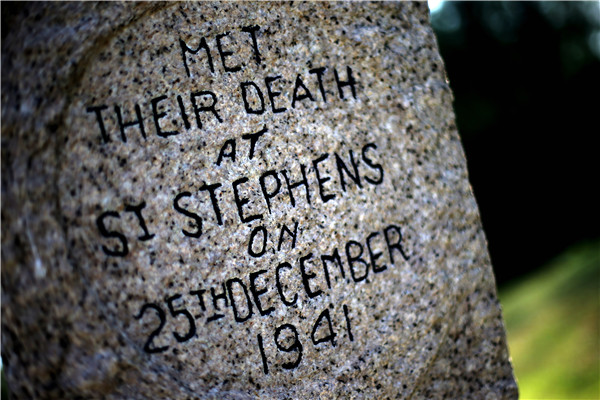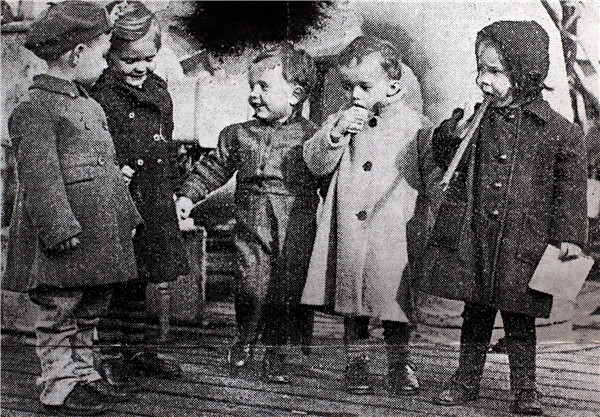Born in captivity, raised in freedom
Updated: 2015-08-27 07:36
By Chitralekha Basu(China Daily)
|
|||||||||||
Family connections
 |
|
A headstone dedicated to the doctors and nurses at St Stephen's College Hospital, who were murdered by Japanese soldiers in December 1941. Edmond Tang / China Daily |
The grass on a little square patch at Stanley Cemetery will remain forever young. The tiny enclosure is cordoned off by four headstones that were erected in memory of the children who died at the camp. It's located on the way to the spot a little higher up the slope where the young soldiers of the Royal Canadian Rifle Regiment, who fought their last battle in an unsuccessful stand to defend Hong Kong against the advancing Japanese, are buried.
Revisiting Stanley Cemetery as the 70th anniversary of Hong Kong's liberation approaches probably inspires a different set of emotions in him today. After all, the burial ground was once part of the internment camp in which he and his brother were born, and one of them never left. Clarke sees his personal loss in the context of the big picture. Commemorating war is as much about remembering the dead as remembering those who lived to tell the tale, according to Clarke. "I didn't suffer in the war, but there were millions who went through hell. For them it was a nightmare. Those scars never healed," he said.
George Cautherley's connection with Stanley Cemetery goes back almost a century and a half, when Bridget, his maternal great-great-grandmother, accompanied her husband, an Irish soldier called Private William Purcell to Hong Kong. She died in 1864 at age 26. An unpolished granite tablet engraved with the names of five women stands close to the spot where Bridget's remains lie.
The women, who were nurses, were gang-raped and then murdered during a massacre of medical professionals and wounded soldiers committed by Japanese soldiers at the military hospital at St Stephen's College on the morning of Dec 25, 1941.
Cautherley's mother, Dorothy, a volunteer nurse at Bowen Road Hospital, from where medics were sent on secondment to other facilities, could have been one of them. It was by sheer luck that she was on duty at Bowen Road on that fateful day.
 |
|
George Cautherley (left) and other young ex-internees arriving in the United Kingdom following their release from the Stanley Internment Camp. Provided to China Daily |
Today's Top News
11 under investigation and 12 detained over Tianjin explosions
Born in captivity, raised in freedom
Hungary scrambles to confront migrant influx
Suspect in Virginia TV shooting had history of workplace issues
Too hard to say goodbye to Tibet: China's Jane Goodall
Bank lowers lending rate to ease debts
Black Monday brings focus onto China's markets, currency
Two US TV journalists shot dead
on air
Hot Topics
Lunar probe , China growth forecasts, Emission rules get tougher, China seen through 'colored lens', International board,
Editor's Picks

|

|

|

|

|

|






